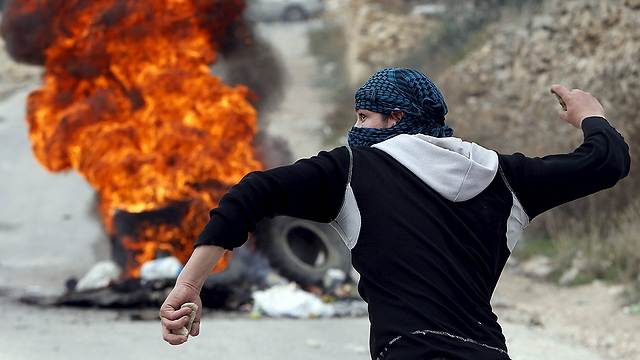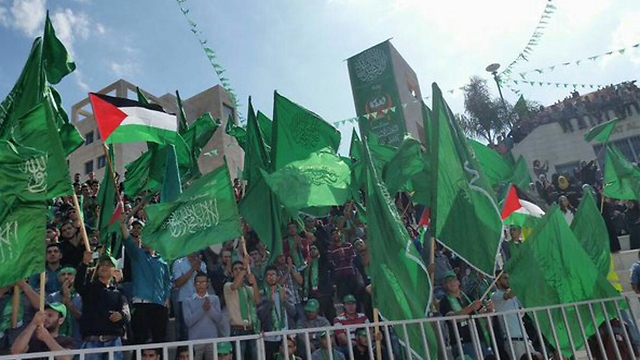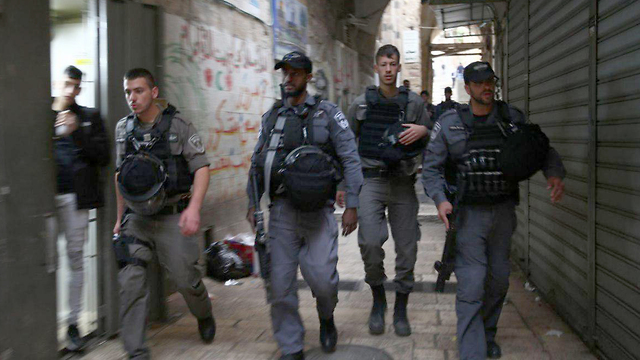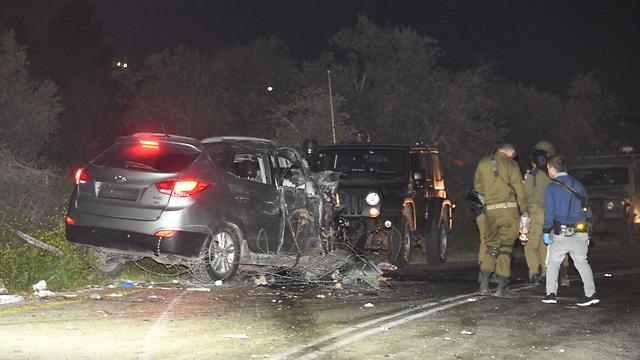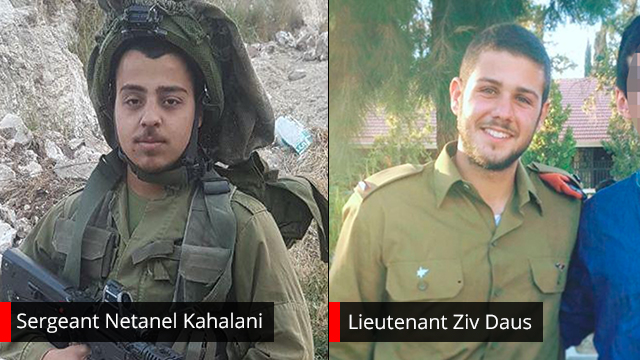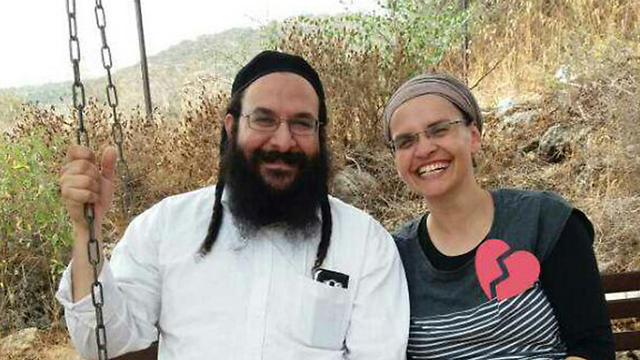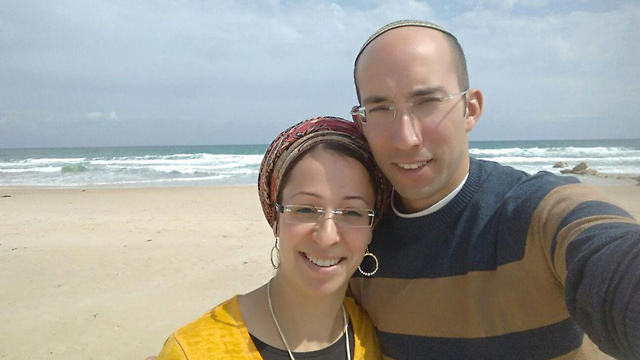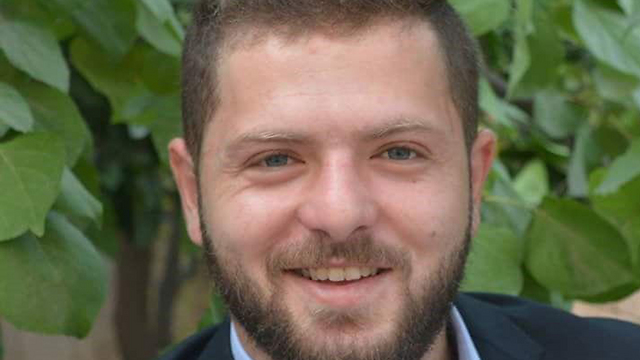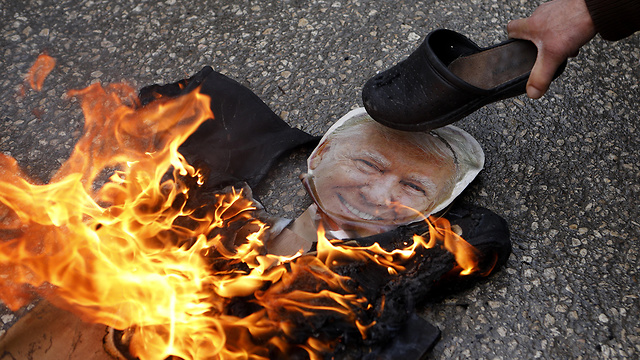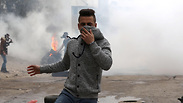

An escalation just waiting to happen
Analysis: Sunday’s deadly stabbing attack in Jerusalem, Friday’s deadly car-ramming attack in the West Bank and the recent murders of Rabbi Itamar Ben Gal and Rabbi Raziel Shevah could be just the start ahead of Nakba Day, Israel’s 70th Independence Day and the US embassy’s move to Jerusalem, and lead to a new round of escalation, which is exactly what Hamas is hoping for.
An escalation usually breaks out after several variables converge at one point in time. That point in time can go on for days and even weeks, with each variable inspiring a different variable.
In the escalation of 2015-2016, which was accompanied by waves of lone-wolf terror attacks, mostly in the form of stabbing attacks and some ramming or shooting attacks, the variables that created the tangent points during those days were:
- A massive campaign launched by Hamas, claiming that Israel was changing the status quo at the Temple Mount;
- Support from the Palestinian Authority and its leadership;
- Young Palestinians' frustration with the leadership in Ramallah and feelings of detachment;
- A lack of a political horizon;
- An unusual, significant growth in incitement on social and electronic media;
- A glorification of terrorists, creating a copycat model, especially among young people with suicidal thoughts or problems at home who were looking for an escape that would turn them from outcasts to heroes.
It took a long time for that escalation to slowly die down. It happened, eventually, also thanks to the Israeli defense establishment’s concrete efforts. Security forces monitored and managed to track down, within the ocean of information, the private people who had conveyed signs pointing to a possible intention to carry out a terror attack. The intelligence success exceeded expectations.
At the same time, the Palestinian security apparatus contributed to the effort to end the wave of terror attacks as well by monitoring young Palestinians. The surveillance was very strict: Every morning, the Palestinian schools gave the apparatus a list of students who hadn’t showed up that day, and the apparatus carried out a quick investigation to ensure that their absence had nothing to do with a possible attempt to carry out a terror attack.
Now, after quite a long period of relative calm, the ground is sizzling with tension again. Within just two days, attacks were carried out by two lone-wolf terrorists: On Sunday evening, in Jerusalem’s Old City, a Palestinian terrorist from the village of Aqraba near Nablus stabbed and seriously wounded Adiel Coleman, who later succumbed to his wounds; on Friday, a terrorist from the village of Barta'a murdered Lieutenant Ziv Daus and Sergeant Netanel Kahalani in a car-ramming attack and wounded two other soldiers. Several shooting incidents have also been carried out in the past week in the Ramallah area without causing any injuries.
Israeli citizens have been attacked on several occasions after accidentally entering PA territories, and American diplomats and businesspeople have been attacked while attending conferences in Palestinian cities.
The shooting attack carried out by a Hamas cell from Jenin, which left Rabbi Raziel Shevah dead, was met with waves of admiration on the Palestinian street for terrorist Ahmed Jarrar. Terrorist Abed al-Karim Adel Assi, who murdered Rabbi Itamar Ben Gal and managed to hide in Nablus for more than a month, was finally captured early Sunday.
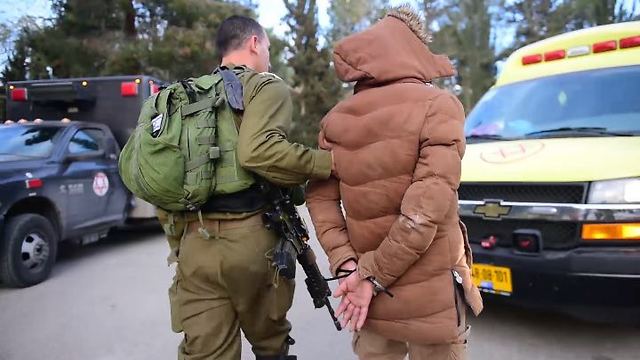
The current tensions could be joined by several variables, which are slowly converging and will keep converging in the coming days and weeks:
- US President Donald Trump’s recognition of Jerusalem as the State of Israel’s capital;
- The Palestinian leadership’s unusual public attack on the American administration;
- The Palestinians' feeling of isolation;
- The lack of support from Arab states;
- The upcoming Palestinian days of commemoration: Land Day, Nakba Day and Naksa Day;
- The “great return march” in the Gaza Strip, which is being planned in several waves from next week to Nakba Day;
- Israel’s 70th Independence Day celebrations;
- The US embassy relocation ceremony in Jerusalem, just one day before Nakba Day;
- Palestinian President Mahmoud Abbas’ deteriorating health and old age, which are expected to lead to succession battles immediately after his departure.
These variables have begun converging, and it’s too early to tell where each and all of them are going to take us. We are facing a particularly explosive series of events in a relatively short timeframe which might ignite the fuse, and that’s exactly what Hamas is hoping for.
It’s important to remember, however, that the equation is being curbed by some factors, starting from the defense establishment’s smart distinction between the Palestinian population and the terrorists and instigating elements to the accurate activity of the Palestinian security apparatuses, which is constantly taking place under the radar—now more than ever—in light of the public Palestinian criticism against the security coordination. Will this activity suffice this time?














